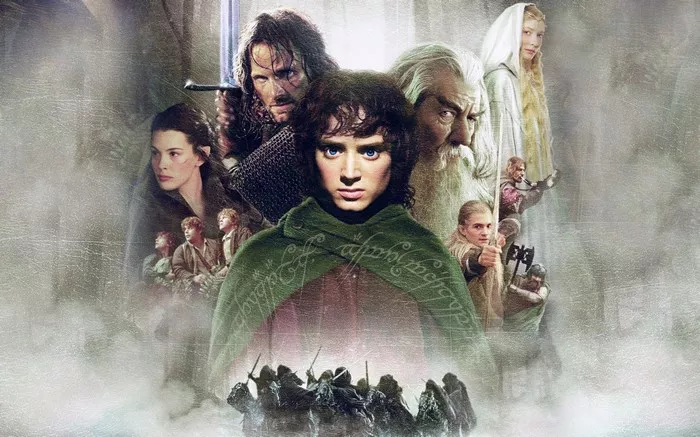In the vast realm of epic fantasy, two titans stand tall, each wielding its unique narrative sword – J.R.R. Tolkien’s “The Lord of the Rings” and George R.R. Martin’s “Game of Thrones.” As fans engage in passionate debates, the question looms large: Is Lord of the Rings Better Than Game of Thrones? This exploration delves into the realms of world-building, character complexity, cultural impact, and the elemental forces that shape the grand tapestries of both series.
I. The Quest for Middle-earth: The Lord of the Rings Saga
1. Tolkien’s Mythic Odyssey: Middle-earth Unveiled
“The Lord of the Rings” introduces readers to Middle-earth, a realm steeped in rich lore, diverse cultures, and a sprawling narrative. Tolkien’s meticulous world-building, linguistic prowess, and exploration of universal themes create an immersive experience that transcends the pages of literature.
2. Heroism and Hope: Themes Beyond Fantasy
The saga unfolds as a timeless exploration of heroism, sacrifice, and the enduring power of hope. Frodo Baggins’ quest to destroy the One Ring, the fellowship’s trials, and the climactic battles against dark forces resonate with readers seeking profound reflections on the human condition.
II. The Game of Thrones: Intrigue, Betrayal, and Power Dynamics
1. Martin’s Political Intricacies: Westeros in Turmoil
“Game of Thrones” invites viewers into the political cauldron of Westeros, a land marked by shifting allegiances, treachery, and the quest for power. George R.R. Martin’s narrative brilliance lies in his ability to craft complex characters navigating a morally gray world.
2. Character Complexity: A Tapestry of Flawed Heroes
The series thrives on character complexity, presenting a vast array of flawed heroes, antiheroes, and morally ambiguous figures. As power dynamics shift, alliances form and crumble, keeping audiences on the edge of their seats in a narrative that defies traditional fantasy conventions.
III. Cultural Impact: Thrones’ Television Reign vs. Tolkien’s Literary Dominion
1. Television Dominance: Game of Thrones Global Phenomenon
“Game of Thrones” achieved unprecedented television dominance, captivating a global audience with its shocking twists, elaborate battles, and intricate character webs. The series became a cultural touchstone, sparking fervent discussions and propelling fantasy into the mainstream.
2. Literary Legacy: Tolkien’s Enduring Influence
While “The Lord of the Rings” had its cinematic triumphs, Tolkien’s enduring influence lies predominantly in literature. His creation of Middle-earth shaped the fantasy genre, influencing subsequent authors, filmmakers, and artists. The series remains a literary benchmark with an everlasting impact.
Conclusion: A Matter of Tastes and Thrones
In the clash of Lord of the Rings and Game of Thrones, declaring a victor remains a subjective pursuit. The choice ultimately hinges on personal tastes, whether one seeks the mythic allure of Middle-earth or the political intrigue of Westeros.
As the echoes of Tolkien’s elvish hymns and the whispers of Westerosi intrigues reverberate, it becomes evident that both series have left indelible marks on the fantasy landscape. Whether through the pages of a book or the glow of a screen, the realms of Middle-earth and Westeros continue to enchant, challenge, and inspire audiences around the world.
In the end, the battle between Lord of the Rings and Game of Thrones persists in the hearts and minds of fans, a testament to the enduring power of fantasy to captivate, provoke, and transport us to realms beyond our wildest imaginations. May the debates rage on, and the magic of both worlds continue to cast its spell for generations to come.

